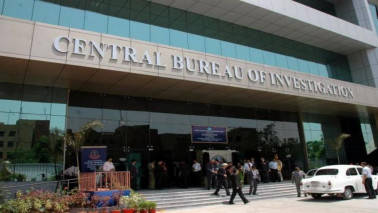Xi became the Vice President in 2008 and was elected President of the People's Republic of China in 2013 after getting elected as the General Secretary of the Communist Party of China in 2012.
With China’s Communist Party planning to remove a two-term cap set in its constitution for the President, speaks volumes of the ruling party’s faith in its current president.
Although Xi Jinping did pay his dues before he got to the top, it did help that he is a princeling — a term used for the informal group of second generation office holders since the Mao Zedong era.
Xi’s father was Xi Zhongxun, who was the party propaganda minister under Mao’s rule. He was also famously known to have been purged off his power by his government many times in his career.
Xi started off by joining the Student’s Union of the Communist party in the 70s. He slowly worked his way up through the ranks, eventually becoming a member of the powerful Politburo Standing Committee of the Communist Party of China in 2007. This is a committee of the senior most posts in the country.
His accession has a lot to do with his tough stance on corruption and his views coinciding with that of the party central leadership, as well a career that was relatively unmarked by scandal or any serious political contenders.
His career began to accelerate on the municipal level after becoming the party head in Shanghai, where his predecessor fell from grace after being implicated of a large social security scam in 2006 .
Xi became the Vice President in 2008 and was elected President of the People's Republic of China in 2013 after getting elected as the General Secretary of the Communist Party of China in 2012.
After becoming the President, an Economist report tracked Xi's promised to root out corruption on all levels. He formed the Central Commission for Discipline Inspection in 2012, which held 120 high-level officials on several counts of corruption. This cemented his cult status as a leader according to a Guardian report, immortalised in song,dance and art.
One the economic front, China’s economy is expected to grow at slower rate. This is due to Xi’s administration focusing on growth while minimising the impact on social equality, the impact of the environment and financial risk.
The Chinese Navy under Xi has also flexed its muscles. A Vox report states that China has been trying to secure maritime control over the South China Sea region.
This is a region where 10 percent of the world’s fisheries and 30 percent of the world’s shipping trade sails through in between destinations.
China has been following an aggressive policy to rein emissions and the reckless flow of credit in the last two years. This has affected growth rates, a hit which the Chinese are willing to take in line with Xi’s line of thought.
An important project under Xi that has also wooed the Chinese is the massive Belt and Road initiative. This is a project was conceived as a USD 5 trillion project that will span across more than 60 countries. This would replicate the connectivity between Asia, Europe and Africa along the lines of the ancient silk road.
To maintain the progress of the nation on all this fronts could be a possibile reason for extending Xi’s leadership. A CNBC report quoted an expert saying that this was a movie to ensure the smooth transition of a political economy to the internal, consumption led economy and that political stability was a necessity for the same.
As the saying goes:"If it isn't broke, don't fix it" and that's the road the Chinese seem to want to take.





